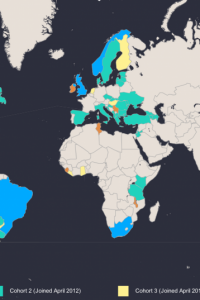Cooperation: the vital missing ingredient in the government open data recipe
Open Democracy Advice Centre
“South Africa has struggled to convert a strong constitutional and legislative regime supporting transparency into real transparency for citizens.” — Open Democracy Advice Centre
86%
of all information requests to South African municipalities in 2014 met with no response
November 2015 End date
August 2016
Issue
One barrier to implementing South Africa’s government-led open data initiative is lack of cooperation between departments. At a technical level, this reduces the potential for compatible data systems. At a political level, it creates conflicts that detract from progress. And at a social level, it means that citizens cannot find and apply the variety of data that is relevant to their needs.
Learning from best – and worst – practice in inter-departmental collaboration from South Africa and other countries can contribute to improving citizen engagement and transparency.
Project
This research focuses on South Africa’s commitments under the Open Government Partnership (OGP), and focuses on how to ensure inter-departmental collaboration to fully implement them. It aims to take full advantage of the opportunities presented by South Africa’s leadership of the OGP Committee, which began in October 2015. It will:
- present at least three examples each of best and worst practice in relation to inter-departmental cooperation on OGP-related commitments from around the world, and analyse the contextual factors that shaped them
- use the lessons gathered from analysing best and worst practice to examine the South African context, and determine what steps will further its open-data-related OGP commitments
- determine what additional open-data-related OGP commitments are needed to move towards open data for empowering citizen engagement
- provide guidance to civil society groups on how to engage government in relation to the open data aspect of OGP commitments.
Partner
The Open Democracy Advice Centre’s mission is to promote open and transparent democracy, foster a culture of corporate and government accountability, and assist people in South Africa to be able to realise their human rights.
Fundamentally, ODAC believes that realising the right to know will make a material and tangible social change, while forwarding social and economic justice.
Learning
The research presents three detailed case studies of OGP implementation – from Canada, the UK and Malawi. This is complemented by an in-depth analysis of the South African context – political, legal, financial and institutional. The analysis examines why coordination is important - especially for producing good open data - and highlights the challenges of achieving it.
The study concludes that the OGP has the potential to be an agent of influence, particularly in relation to coordination. What practical interventions might further current progress on coordination in South Africa, so that open data can be made a reality?
- Establish a Permanent Dialogue Mechanism (PDM), including departments with a coordination function and departments with mandates that fall under the areas covered by the OGP.
- Re-define the remit of the current lead implementing agency, so that its main focus is on coordination. Devolve much of its current planning and policy remit to the PDM.
- Encourage the formation of communities of civil society and government experts around the effective implementation of specific Commitments.
Publications
-
 View publication
View publication
Connecting the dots: The coordination challenge for…